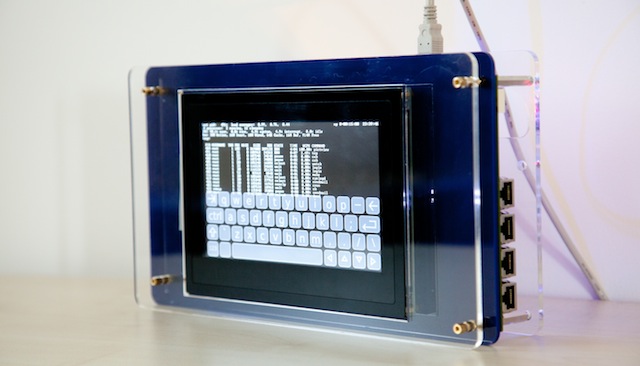Last week,  Jonathan Woodruff presented our joint paper on the CHERI memory model, The CHERI capability model: Revisiting RISC in an age of risk, at the 2014 International Symposium on Computer Architecture (ISCA) in Minneapolis (video, slides). This is our first full paper on Capability Hardware Enhanced RISC Instructions (CHERI), collaborative work between Simon Moore’s and my team composed of members of the Security, Computer Architecture, and Systems Research Groups at the University of Cambridge Computer Laboratory, Peter G. Neumann’s group at the Computer Science Laboratory at SRI International, and Ben Laurie at Google.
Jonathan Woodruff presented our joint paper on the CHERI memory model, The CHERI capability model: Revisiting RISC in an age of risk, at the 2014 International Symposium on Computer Architecture (ISCA) in Minneapolis (video, slides). This is our first full paper on Capability Hardware Enhanced RISC Instructions (CHERI), collaborative work between Simon Moore’s and my team composed of members of the Security, Computer Architecture, and Systems Research Groups at the University of Cambridge Computer Laboratory, Peter G. Neumann’s group at the Computer Science Laboratory at SRI International, and Ben Laurie at Google.
CHERI is an instruction-set extension, prototyped via an FPGA-based soft processor core named BERI, that integrates a capability-system model with a conventional memory-management unit (MMU)-based pipeline. Unlike conventional OS-facing MMU-based protection, the CHERI protection and security models are aimed at compilers and applications. CHERI provides efficient, robust, compiler-driven, hardware-supported, and fine-grained memory protection and software compartmentalisation (sandboxing) within, rather than between, addresses spaces. We run a version of FreeBSD that has been adapted to support the hardware capability model (CheriBSD) compiled with a CHERI-aware Clang/LLVM that supports C pointer integrity, bounds checking, and capability-based protection and delegation. CheriBSD also supports a higher-level hardware-software security model permitting sandboxing of application components within an address space based on capabilities and a Call/Return mechanism supporting mutual distrust.
The approach draws inspiration from Capsicum, our OS-facing hybrid capability-system model now shipping in FreeBSD and available as a patch for Linux courtesy Google. We found that capability-system approaches matched extremely well with least-privilege oriented software compartmentalisation, in which programs are broken up into sandboxed components to mitigate the effects of exploited vulnerabilities. CHERI similarly merges research capability-system ideas with a conventional RISC processor design, making accessible the security and robustness benefits of the former, while retaining software compatibility with the latter. In the paper, we contrast our approach with a number of others including Intel’s forthcoming Memory Protection eXtensions (MPX), but in particular pursue a RISC-oriented design instantiated against the 64-bit MIPS ISA, but the ideas should be portable to other RISC ISAs such as ARMv8 and RISC-V.
Our hardware prototype is implemented in Bluespec System Verilog, a high-level hardware description language (HDL) that makes it easier to perform design-space exploration. To facilitate both reproducibility for this work, and also future hardware-software research, we’ve open sourced the underlying Bluespec Extensible RISC Implementation (BERI), our CHERI extensions, and a complete software stack: operating system, compiler, and so on. In fact, support for the underlying 64-bit RISC platform, which implements a version of the 64-bit MIPS ISA, was upstreamed to FreeBSD 10.0, which shipped earlier this year. Our capability-enhanced versions of FreeBSD (CheriBSD) and Clang/LLVM are distributed via GitHub.
You can learn more about CHERI, BERI, and our larger clean-slate hardware-software agenda on the CTSRD Project Website. There, you will find copies of our prior workshop papers, full Bluespec source code for the FPGA processor design, hardware build instructions for our FPGA-based tablet, downloadable CheriBSD images, software source code, and also our recent technical report, Capability Hardware Enhanced RISC Instructions: CHERI Instruction-Set Architecture, and Jon Woodruff’s PhD dissertation on CHERI.
Jonathan Woodruff, Robert N. M. Watson, David Chisnall, Simon W. Moore, Jonathan Anderson, Brooks Davis, Ben Laurie, Peter G. Neumann, Robert Norton, and Michael Roe. The CHERI capability model: Revisiting RISC in an age of risk, Proceedings of the 41st International Symposium on Computer Architecture (ISCA 2014), Minneapolis, MN, USA, June 14–16, 2014.